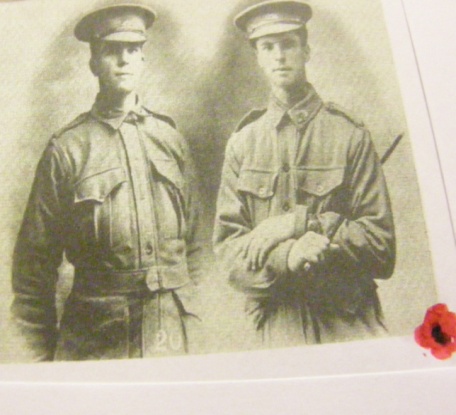
Divisions
-
Community Partnerships and Priorities
- Aboriginal Partnerships
- Child and Youth Wellbeing
-
Community Policy and Engagement
- Advisory groups
- Centenary of ANZAC
- Companion Card Program
- Concessions Guide
- Prevention of Family and Sexual Violence
- International Women's Day
- Frank MacDonald Memorial Prize
- Significant Tasmanian women
- Tasmanian Honour Roll of Women
- Women on Tasmanian boards and committees
- Veterans Programs
- Seniors Card
- Tasmanian Carer Action Plan
- Older Tasmanians
- LGBTIQA+ Tasmanians
- Volunteering
- Multicultural Tasmanians
- Food Relief to Food Resilience
- People with Disability
- Women
- Community and Disability Services
- Community Grants
- Contact
- Digital Strategy and Services
- Office of Local Government
- Office of Parliamentary Counsel
- Office of Review and Evaluation
- Office of the Secretary
- Resilience and Recovery Tasmania
- Corporate and Government Services
- Policy Division
- Service Tasmania Unit
- State Service Management Office
Contact Details
By phone
Find the number of a specific division or office to contact them directly or call Service Tasmania on 1300 135 513.
Our staff
Use the Tasmanian Government Directory to find staff contact details
Social media
Follow our social media accounts to keep up to date with specific programs and initiatives.
Alfred Arnold Lancaster
 Alfred
Arnold Lancaster was born on 21 February 1896, the 10th
child of Robert and Sarah Lancaster and spent his childhood with his 13
siblings on the family property at Zig Zag Road in Sulphur Creek, Tasmania.
Alfred
Arnold Lancaster was born on 21 February 1896, the 10th
child of Robert and Sarah Lancaster and spent his childhood with his 13
siblings on the family property at Zig Zag Road in Sulphur Creek, Tasmania.
As a young man Alfred worked in the mines at Magnet. Prior to enlistment at 19 years of age, on the 17 June 1915, he served six months in the 91st Infantry at Penguin.
Alf was assigned to the 26th Battalion which embarked from Hobart on 14 of July to join the Mediterranean Expeditionary Forces on the Gallipoli Peninsula.
Unfortunately or maybe fortunately he became ill aboard ship, and, on arrival in ANZAC was transferred firstly to Mudros, and then by H S Soudan to Malta where he was admitted to St. David’s Hospital on 13 October.

After receiving treatment for colitis, he convalesced for several weeks, before being shipped to Egypt and rejoining his unit at Ismailia on the 21 February 1916.
At Moascar, shortly before being sent to France, Alf was charged with “riding on a loaded wagon, of which he was escort, against rules” and awarded ’48 hours full pay No. 2’.
He left Alexandria on the 23 March, arriving in Marseilles, in France, a week later.
On the 28 August Alf received a severe gunshot wound to his left leg which necessitated four months of treatment at St, Luke’s War Hospital in Halifax, England.
He returned to France aboard SS Princess Clementine on 28 December, and rejoined his unit on 7 January 1917. Between July and December of that year, he was promoted on three occasions, from Private to Lance Corporal, Temporary Sergeant and Sergeant.
On 25 August his unit relocated to Belgium, where two days before Christmas he was wounded a second time, receiving a slight gunshot injury to his back, he took three weeks to recover from this.
Apart from 17 days' leave in England in January 1918. Alf spent 10 months fighting in Belgium before returning to France.
In August 1918, Alf was detached to Hayling Island Musketry School in England, where he earned a good report – “Had a good knowledge of musketry on arrival at school. Made very good progress during attendance. Is fit for position of Musketry Instructor or Battalion Sergeant Instructor of Musketry.
Despite the recommendation. Alf rejoined the Battalion in France on 23 September for another four months, before returning to England at the end of January 1919 in preparation for the voyage back to Australia in April. He disembarked home on the 22 May and was discharged from the Army on the 11 August 1919.
The only lasting effect of his war injuries stemmed from being gassed in the trenches, causing severe asthma in his later years. He worked as a labourer in Penguin until purchasing a Butcher’s shop in Elphin Road, Launceston, opposite the entrance to David Street in 1922.
On 25 December 1925 Alf and Victoria Alexandra Gill (known as Queenie) were married. Queenie was well known in Launceston as a very musical and a gifted pipe organist.
Queenie and Alf raised a family of five – four daughters and one son.
In the late 1940’s, Alf built his own shop in Penquite Road, in Newstead, but was forced to take early retirement due to ill health.
Alf died on the 10 November 1980 and Queenie on the 3 March 1986 at “Norwood Haven” Home in Launceston. Alf was cremated and his ashes were placed at Carr Villa Cemetery. Queenie was buried at Carr Villa Cemetery.
Alfred's brother, Private Leslie Lancaster, also served in World War One. The two Lancaster brothers were researched by Graham Deacon the RSL representative on the Frank MacDonald Memorial Study Tour 2016.

